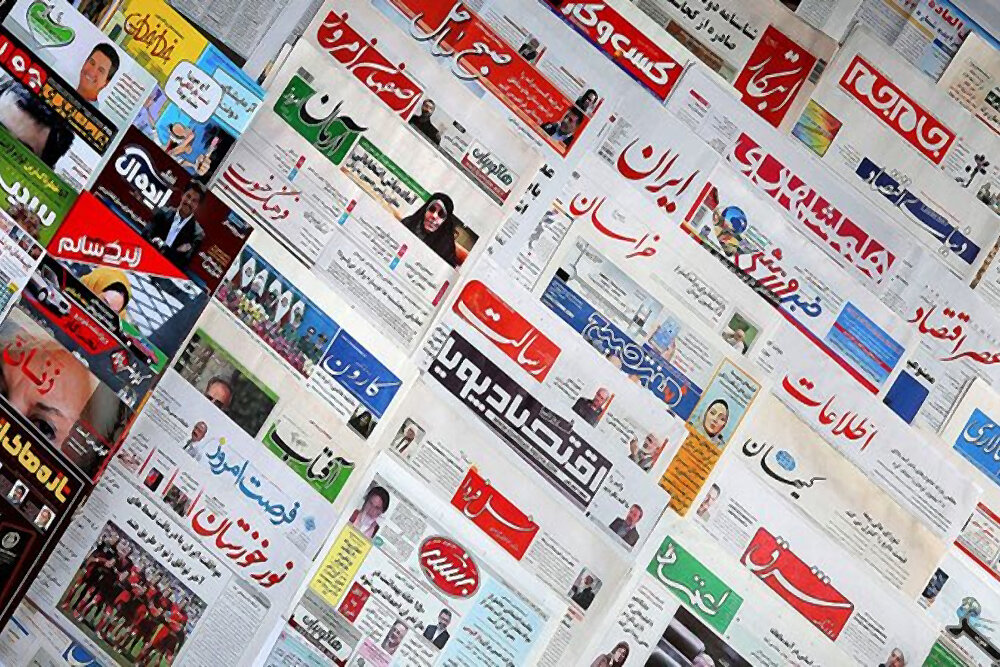Arman-e-Melli: A spark of hope

Arman-e- Melli writes: The recent words of Iran's chief negotiator Ali Bagheri-Kani had a new point in which a glimmer of hope could be seen. Bagheri-Kani, instead of emphasizing the fulfillment of America's commitments in the nuclear deal and the issue of safeguards, only mentioned the revival of the 2015 nuclear agreement.
Bagheri Kani's words come at a time that Iran is negotiating with the IAEA, and if there is no agreement, another resolution against Iran may be approved by the IAEA board of governors, and Iran's case will be sent to the Security Council.
Referring to the importance of the nuclear agreement, the daily writes: The JCPOA is definitely still the best document for Iran and the West to reach an agreement. But if Iran wants to talk with the West about other issues, the negotiations may be step by step, and such a mechanism will be temporary and will not lead to an economic opening for Iran. We need a serious and concrete initiative to revive the JCPOA.
Etemad: Solution lies in direct negotiations between Iran, U.S.
Hossein Alaei, the first commander of the IRGC Navy and a political analyst, told Etemad, many of Iran's problems are due to its conflict with the United States.
United States seeks to weaken Iran and signed the JCPOA agreement to contain Tehran, not to solve Iran's economic problems, but Iran considers the JCPOA as an opportunity to solve its economic and political problems.
According to Alaei, the critical issue is whether Iran and the U.S., that both play a leading role in issues related to security in the Middle East, have reached a conclusion to resolve their disputes or not.
Stating that Israel's sabotage against Iran is carried out with a green light by the U.S., he added: Reviving the JCPOA without reducing tension with the United States will be a ‘temporary settlement’.
Alaei added: We have to choose better bad now. But experience has shown that the biggest enmities are resolved through negotiation.
The solution is to resist excesses and at the same time negotiating. Therefore, Iran and the U.S. should decide to talk directly.
Etela’at: Is nuclear war coming?
In an article titled "Is a nuclear war looming!", Etela’at points to the Ukraine war and writes: The assessment of the Biden administration is that the longer this war lasts, the more isolated Putin and his companions will be on the international stage and they will suffer defeat.
The newspaper writes: Biden also considers the war in Ukraine as an opportunity for a win for himself and the Democrats in the upcoming U.S. elections!
At the same time, the article says: The prolongation of the war in Ukraine increases the gap and differences between the transatlantic and NATO allies.
Since the beginning of the war in Ukraine, many political-security strategists in the West said that the war is a confrontation between Biden and Putin and has the potential of a nuclear war.
Three scenarios in Ukraine are possible: 1- The attrition war will continue. 2- Efforts for a ceasefire and dialogue to resolve the crisis will not yield results soon. 3- The continuation of the war and extensive damage increases the possibility of a nuclear war.
Quds: Let's not lose our strategic depth
After the deadly shooting incident at the embassy of the Republic of Azerbaijan in Tehran, the government of Baku raised its enmity with Iran to its highest level and exerted the most severe restrictions on a number of Shiites in the country for allegedly cooperating with Iran.
During the past years, the Islamic Republic, emphasizing the concept of "ideological depth", tried to adopt a policy of tolerance toward the hostility by the Aliyev regime while supporting Shias.
Undoubtedly, this was a wrong policy because by not responding, the Aliyev regime assumed that Iran’s passivity is a sign of fear and this was a miscalculation.
We can avoid war with the northern neighbor in the current situation by adopting strong and active diplomacy.
Another point is that after Baku's anti-religious and pro-Zionist policies coupled with its promotion of Wahhabism and giving residence permits to thousands of Takfiris, the population of Shiites in Azerbaijan has decreased to about 65%. If Iran does not take action, it will pay a heavy price.
Leave a Comment